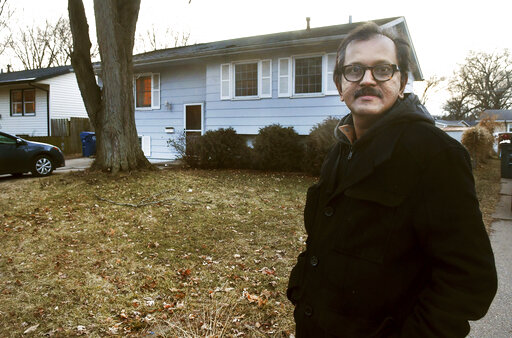BETTENDORF, Iowa — The city of Bettendorf has been awarded a $2.2 million federal grant that, coupled with state and city contributions, will make $2.95 million available to buy out up to 22 homeowners in the flood plain along Duck Creek near Interstate 74.
This will be the second in what the city hopes will be more buyouts of homes in the flood plain that besides being subject to possible flooding have seen such steep increases in flood insurance that payments are no longer affordable.
The city previously has identified about 360 single-family homes in regulated flood zones and, of those, pegged about 80 for buyouts, based on their being the “first to flood” because of elevation, John Soenksen, community development director, told the Quad-City Times.
Of the 80, 10 were purchased and demolished in 2017 with the area made into green space.
The city intends to keep applying for grants that would make future buyouts possible, rescuing residents from escalating premiums that also make their homes nearly impossible to sell on the open market.
The latest grant from the Federal Emergency Management Agency, or FEMA, is good news for Mark and Annetta Cooper, who have lived along Parkway Drive for 20 years.
Although they’ve never gotten water in their house, their flood insurance — which they’re required by their lending institution to carry as long as they have a mortgage _ has tripled in the past five to 10 years, Mark Cooper said.
Insurance premiums were about $600 per year when the Coopers bought their home, but are now around $1,600, he said.
And they can’t sell their house for what they have in it because buyers don’t want those big insurance payments either, Cooper added.
If someone could afford that (the high premiums), “why not just buy a better house somewhere else?” he said.
The city will offer homeowners a price based on appraisals from 2017 done by Rally Appraisals, Bettendorf, Soenksen said. Amounts range from around $90,000 to $160,000.
The Coopers haven’t received a specific offer yet, but anticipate it soon. And if it’s what they expect, they will be satisfied.
“We don’t know what we would do if it weren’t for this buyout,” Cooper said. “We’d be up a creek, literally, without a paddle. We’re glad it’s working out this way.”
The affected neighborhood was built in the mid-’60s. Most of the homes are one-story, with or without basements, although there are a couple of two-stories and split-foyers as well.
Cooper is concerned that the neighborhood will degrade because of a trend he already has seen: investors with money buying homes for cash “nowhere near what the house is worth because the owners want to get out, and our neighborhood is becoming a neighborhood of renters, which is not the best situation in the world,” he said.
When an investor pays cash there is no lending institution involved, so no insurance is required. The investors are taking the chance that the homes won’t flood and that they will continue to make money on their rents.
While a high number of rentals can be concerning, city officials are more worried about abandoned homes; that is, residents just walking away from their property because they can’t make the payments, Decker Ploehn, city administrator, said.
Soenksen said he doesn’t know how many homes in the area might be vacant, but that “the vast majority are still occupied under some kind of ownership.”
Some residents whose homes are paid for — and therefore aren’t required to buy flood insurance — are not taking buyouts, Cooper said. They are taking their chances.
Flood insurance premiums started to become a big expense after passage of the federal Biggert Waters Act of 2012 that raised rates on certain properties to more accurately reflect their true flood risk. The new policy triggered premium increases and the elimination of subsidies that, until then, made flood insurance largely affordable.
The city has three years, or until December of 2022, to complete the buyouts, Soenksen said. In addition to the federal portion of $2,215,650, the state of Iowa is contributing 10%, or $295,420, and the city of Bettendorf will contribute up to 15%, or $443,130, if every person pegged for a buyout takes it, he said.
About the photo: Martin Thachil poses for a photo in front of his home near Duck Creek in Bettendorf, Iowa on Jan. 16. The city of Bettendorf has been awarded a $2.2 million federal grant that, coupled with state and city contributions, will make $2.95 million available to buy out up to 22 homeowners in the flood plain along Duck Creek near Interstate 74. (Gary L. Krambeck/Quad City Times via AP)
Was this article valuable?
Here are more articles you may enjoy.


 Viewpoint: How Generative AI Enables a Brighter Claims Future in 2024 and Beyond
Viewpoint: How Generative AI Enables a Brighter Claims Future in 2024 and Beyond  Supreme Court Allows More Transport Workers to Bypass Arbitration and Sue Employers
Supreme Court Allows More Transport Workers to Bypass Arbitration and Sue Employers  Dog-Related Injury Claim Payouts Hit $1.12B in 2023, Report Shows
Dog-Related Injury Claim Payouts Hit $1.12B in 2023, Report Shows  US Eyeing Ship’s Electrical System After Baltimore Bridge Crash
US Eyeing Ship’s Electrical System After Baltimore Bridge Crash 